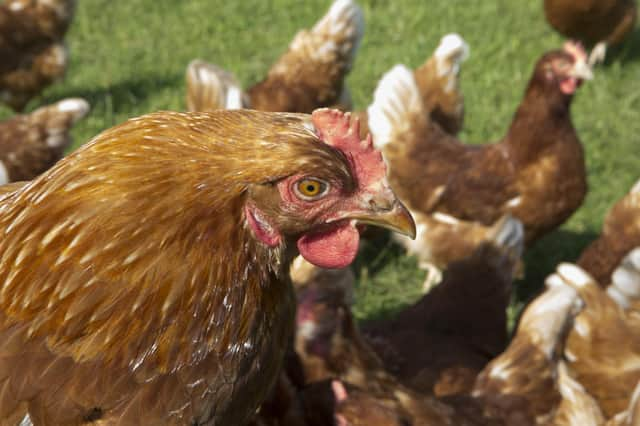Scotland must be first country in UK to ban intensive farming – Juliet Gellatley


Erikson was fascinated by cataclysmic events and their effects on the human condition. At the time, trauma was understood through the prism of the individual. Bad things happened to people in isolation. People suffered and prevailed alone.
Then a mudslide at a mine in West Virginia killed some 125 people and injured more than 1,000. Angered by their breathtaking negligence, the victims’ families launched a civil action against the mine’s owners.
Advertisement
Hide AdAdvertisement
Hide AdThe appointed lawyers looked to Erikson to make sense of the aftermath. Erikson saw how the trauma of the disaster had ripped apart the mining community. People stopped trusting each other. They shared the same pain. They let it eat away at them.
Erikson knew what was happening. He called it ‘collective trauma’ – coining a term never used before in sociology. He was clear that when an event deeply impacts so many people in such a profound way the trauma transcends the individual. It becomes something more than that. It becomes ingrained in us all.
We now have a vaccine but the collective trauma of Covid-19 will take generations to process. At La Paz University hospital in Madrid, lines of Covid-infected patients died in hospital corridors waiting to see a doctor.
In the Amazon city of Manaus, the national funeral home issued an urgent plea to the government in Brasilia to send more coffins. And in care homes around the world, elderly people died in agony alone.
And humankind risks doing this all over again if we don’t change. Scientists estimate that more than six out of every 10 known infectious diseases in people come from animals, along with three in four new or emerging infections.
The global meat, poultry and dairy trades drive demand for high-intensity factory farming. Intensive farms, in which tens of thousands of animals are kept in close proximity, are the perfect breeding ground for more novel viruses.
Most of Scotland’s six million laying hens are crammed into cages in windowless sheds containing thousands of birds.
Across Asia, the H5N1 avian influenza virus is now endemic. Since 1997, a diverse array of mutated versions have spread across the globe.
Advertisement
Hide AdAdvertisement
Hide AdMore than 40 genotypes of H5N1 viruses have been identified in China alone. H5N1 has jumped from factory-farmed birds to humans hundreds of times – with a frighteningly high mortality rate of around 60 per cent. The virus hasn’t spread from human to human effectively – but the possibility threatens.
Earlier this month, a survey revealed some 83 per cent of Scots want the government to introduce an immediate ban on intensive farming methods amid concerns over killer viruses, while one in three are aiming to slash their consumption of animal products over virus fears.
Now Holyrood must listen to the people and promote real animal welfare through plant-based lifestyles. Farming minister Fergus Ewing must urgently work to strengthen the 2006 Animal Welfare Act to outlaw intensive farming methods as a first step.
Humankind has a big decision to make. End the curse of factory farming or risk a perpetual cycle of killer viruses. Scots cannot face yet more collective trauma. There’s not a moment to lose.
Juliet Gellatley is director of vegan campaigning charity Viva!
A message from the Editor:
Thank you for reading this article. We're more reliant on your support than ever as the shift in consumer habits brought about by coronavirus impacts our advertisers.
If you haven't already, please consider supporting our trusted, fact-checked journalism by taking out a digital subscription.
Comments
Want to join the conversation? Please or to comment on this article.
